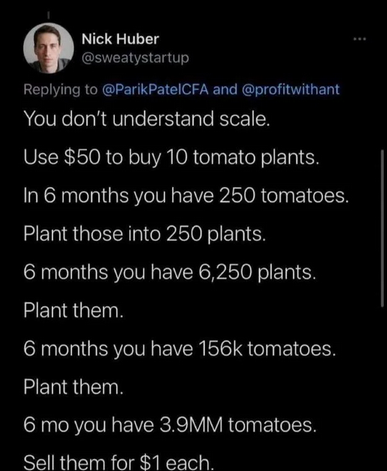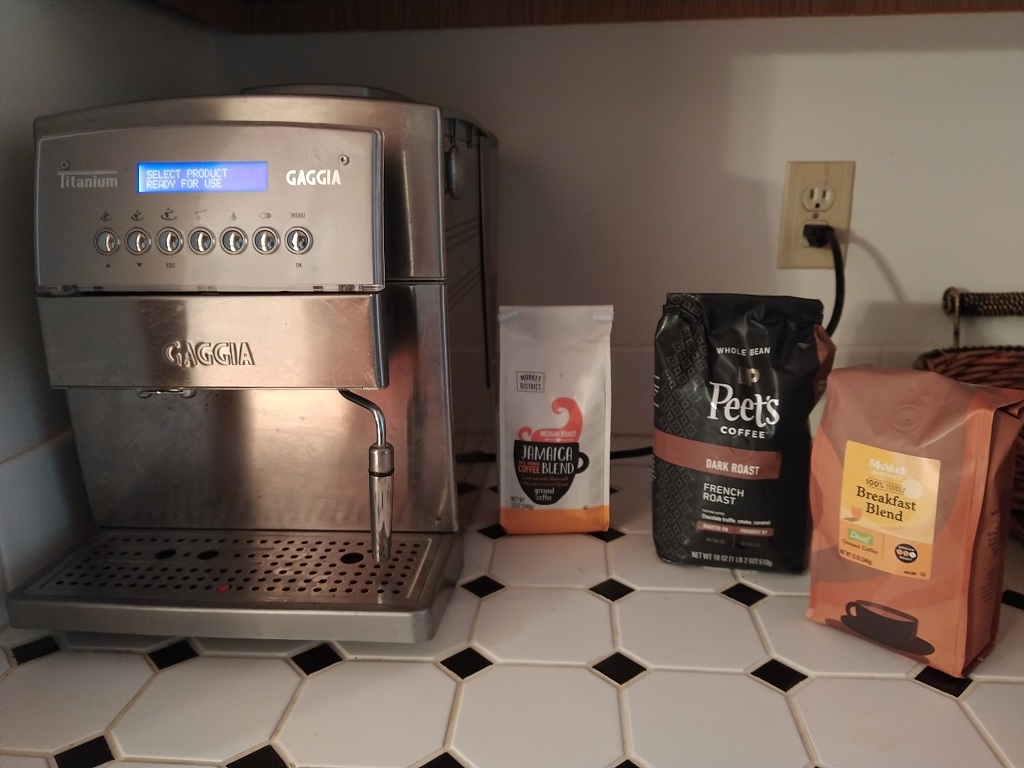There’s all sorts of bad advice about how people just aren’t trying hard enough to not be poor — if only you saved more money like there is a surfeit of money around to save. Work more like you can add a couple of extra hours to each day or just jam another day into the week. And this guy … who evidently thinks the whole problem is that people don’t understand … scale?

The funniest part to me? This dude wants to start with “you don’t understand scale, I’m gonna educate you …” and then proceeds to not understand scale. Small scale purchases will yield the highest price per pound — someone who is buying tomatoes by the tonne certainly isn’t paying a buck a tomato or even fifty cents a tomato. What’s the price for a tonne of tomatoes? The tomato price per tonne data I’ve found are a little outdated, but lets say $100 a tonne for easy mental math. Even if these tomatoes weigh a pound each (unlikely), then every 2k tomatoes gets you $100. He has about 4 million tomatoes … so 2,000 tonnes of tomatoes @ $100 a tonne grosses $200,000. In addition to not understanding scale, he is not understanding gross v/s net income. And, well, tomatoes.
Even if we ignore the required land (which wouldn’t be trivial — planting 150k tomato plants with adequate spacing is going to be 10+ acres), equipment, and labor required to produce and harvest all of those tomatoes. Say they ripen over a 90 day period (which is super generous in my part of the world, but again pretending it’s reasonable for the sake of argument), you need to move some 44,000 tomatoes A DAY for 90 days. Where are these things going as they get picked? How to I transport them to these hypothetical customers? And who are these customers? Even if every customer buys ten tomatoes a week, I need over 30,000 unique customers (every single one of whom repeats their ten tomato a week purchase for three months straight). Are there actually 30,000 people willing to buy a $10/week tomato subscription for the entire harvest season?
This guy’s hypothetical tomatoes aren’t an example of scale, they’re an example of generational wealth. If you inherited a few thousand acres of land (probably complete with an irrigation system and greenhouses), equipment, warehouses, and a fleet of trucks to move ’em … then maybe you could employ a lot of people for planting, harvesting, and selling at farm markets where you might hope to get something even approaching a buck a tomato. Even then, you aren’t netting hundreds of millions of dollars — you’ve got electrical, transportation, and labor expenses to pay. That’s not building a tomato empire from fifty bucks and a handful of tomato plants — that’s millions of dollars in inherited assets to net maybe a million bucks a year.








